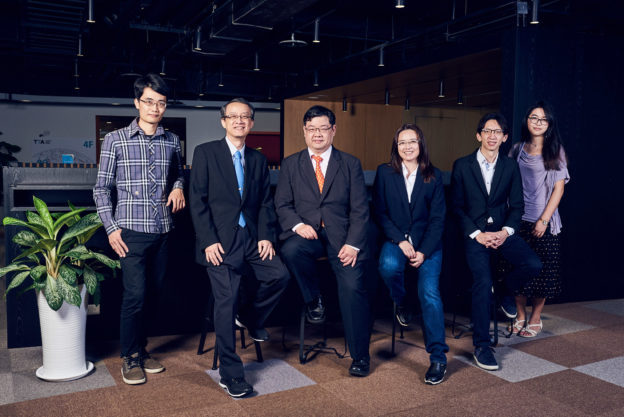


This year, the FDA approved 12 algorithm-assisted medical products, such as the interpretation of diabetes from the retina, and the interpretation of the source of acute stroke patients. As algorithm and machine learning technology progresses, there will be more and more similar AI medical applications. Taiwan has a high reputation for medical standards, and the academic community has many technologists in AI computing. This injects tremendous energy into medical innovations. AHEAD is a cross-disciplinary model of medical AI applications. Next year, along with Ministry of Science and Technology, they will participate in the Consumer Electronics Show in Las Vegas.
AHEAD focuses on the use of AI for blood testing and prognosis. The so-called prognosis (outcomes) is to determine whether the patients will relapse after treatment, whether they will die due to the treatment, and so on. NTU is in charge of the blood detection and NTHU EE is responsible for the AI algorithm.
The user interface of this system is very simple. After feeding the data, the system will automatically convert the data into an easily identified chart. The doctor can know the relative position of the sample and intuitively compare the normal or unusual state of the sample. Even if the doctors do not have much experience, they can easily interpret by the aid of this system.
The biggest issue for medical technology applications is privacy, which is a universal problem. Taiwan regulations stipulate that medical data is not accessible, so it must be approved by the Medical Ethics Committee. All operators need to obtain a certificate to obtain the certificate in order to process the data according to the specifications.
Now the system developed by AHEAD can only be used inside the National Taiwan University because of regulations, but it has received many hospitals’ inquiries. Doctors hope that the system can be implemented as soon as possible, because blood interpretation is too time-consuming. If such basic working hours can be shortened, they can spend more time on caring for patients. At present, the University of Pittsburgh Medical Center also agreed to test whether there is a gap in the detecting results of the same software in the United States.
AHEAD is a special team led by TTA of the Ministry of Science and Technology to CES in the US Consumer Electronics Show. It has not yet established a company. It is just an academic project, but everyone is confident in the future of AHEAD. The key is that the group members from different fields can communicate with each other. It is a valuable and successful mode of cooperation. Bo-Sheng Ke emphasized that medical professionals must also accept new technologies quickly and treat them in a reasonable way. Don't be afraid of AI. This way, implementation can be accelerated.